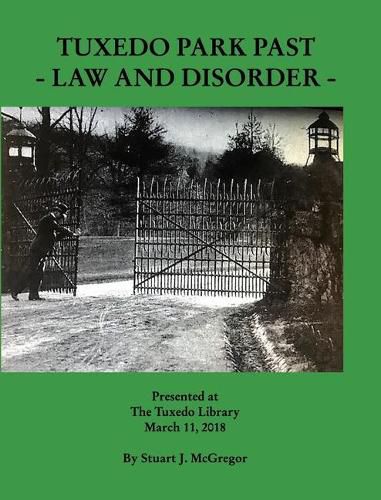Readings Newsletter
Become a Readings Member to make your shopping experience even easier.
Sign in or sign up for free!
You’re not far away from qualifying for FREE standard shipping within Australia
You’ve qualified for FREE standard shipping within Australia
The cart is loading…






This title is printed to order. This book may have been self-published. If so, we cannot guarantee the quality of the content. In the main most books will have gone through the editing process however some may not. We therefore suggest that you be aware of this before ordering this book. If in doubt check either the author or publisher’s details as we are unable to accept any returns unless they are faulty. Please contact us if you have any questions.
Pierre Lorillard was a member of the well-known wealthy family who made a fortune in the tobacco business in the 18th century. Tuxedo Park was a planned recreational community created by Pierre Lorillard III approximately 38 miles north of New York City in 1886. This very private community was populated by the wealthy and social set of the Gilded Age. The jacket named the Tuxedo originated at The Tuxedo Club. What started as a private hunting and recreational preserve with a clubhouse and wood cottages morphed into a gated, fenced with barbed wire, exclusive colony of grand estates for the rich and social elite. It was another place to play between their mansions in New York, summers in Newport and winter months in Palm Beach. Security and privacy together with money and social status were the cornerstones of this gated and fenced community. Originally, a retreat for the spring and fall months with a New Year’s tradition, Tuxedo Park soon became a year-round residence for bankers, financial leaders, and captains of the industry during the Gilded Age and their families from the 1880’s through the depression. This presentation touches on just one of those families and life in the early decades of the 20th century. While the country watched and read about this small community and their aristocratic lifestyle, they also learned the residents behind the iron gates were suffering the same insecurities of many others in the country due to the industrialization and population growth that spread from the great cities of the new growing America.
$9.00 standard shipping within Australia
FREE standard shipping within Australia for orders over $100.00
Express & International shipping calculated at checkout
This title is printed to order. This book may have been self-published. If so, we cannot guarantee the quality of the content. In the main most books will have gone through the editing process however some may not. We therefore suggest that you be aware of this before ordering this book. If in doubt check either the author or publisher’s details as we are unable to accept any returns unless they are faulty. Please contact us if you have any questions.
Pierre Lorillard was a member of the well-known wealthy family who made a fortune in the tobacco business in the 18th century. Tuxedo Park was a planned recreational community created by Pierre Lorillard III approximately 38 miles north of New York City in 1886. This very private community was populated by the wealthy and social set of the Gilded Age. The jacket named the Tuxedo originated at The Tuxedo Club. What started as a private hunting and recreational preserve with a clubhouse and wood cottages morphed into a gated, fenced with barbed wire, exclusive colony of grand estates for the rich and social elite. It was another place to play between their mansions in New York, summers in Newport and winter months in Palm Beach. Security and privacy together with money and social status were the cornerstones of this gated and fenced community. Originally, a retreat for the spring and fall months with a New Year’s tradition, Tuxedo Park soon became a year-round residence for bankers, financial leaders, and captains of the industry during the Gilded Age and their families from the 1880’s through the depression. This presentation touches on just one of those families and life in the early decades of the 20th century. While the country watched and read about this small community and their aristocratic lifestyle, they also learned the residents behind the iron gates were suffering the same insecurities of many others in the country due to the industrialization and population growth that spread from the great cities of the new growing America.